Tag: #PositiveParenting
Essential Parenting Books Every Parent Must Read
Essential Parenting Books Every Parent Must Read
Parenting books, If they are worth to their content (most aren’t), tend to lead us toward a reckoning with our own parentage. In this way they are more like parenting itself. We want to shape our children into something other than our own image.
A great book for new parents, or anyone looking to improve their parenting skills. When you’re a parent, there are so many things to worry about. But don’t worry – these books has got you covered!
While mentioning about – Essential parenting books every parent must read, I specify about –
Parents have many questions when they first start having kids. These books answers them all! Parenting are an essential books for parents who want to know more about their children. These books covers everything from birth to adulthood.
# There are so many books on parenting out there, but not all of them are worth reading. This one is!
The Whole brain child
All About Parenting books are an easy read that will give you practical advice for raising kids in today’s world. These books covers topics ranging from how to discipline children to how to teach them right from wrong. Gives parents and teachers ideas to get all parts of a healthy child’s brain working together.
If you’re looking for some solid advice on how to raise a child with developing mind, then you need to check out “The whole brain child” by – Daniel J. Siegel and Tina Payne Bryson. The writer turn leading brain science into simple, smart and effective solutions to your child struggles. Bestselling author of mindsight.
The author explain – and make accessible – the new science of how a child’s brain is wired and how it matures. The “upstairs brain,” Which makes decisions and balances emotions is under construction until the mid-twenties. A useful child-rearing resource for the entire family. The author include a fair amount of brain science, but they present it for both adult and child audiences.
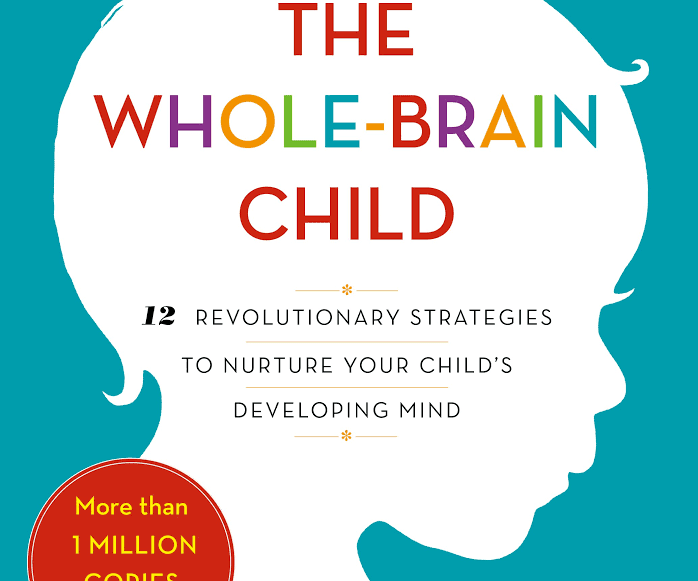
Revolutionary strategies to nurture your child developing mind. Survive everyday parenting struggles and help your family thrive. The character of parenting is unmatched in the mortal film of a creature’s life. A parent can be anyone who gives the most pure and unconditional love to another.
A parent would never want evil to happen to their child. It has learned to dodge arrows with its broad white wings and to protect its vulnerable heart by wrapping it in a satin cloth. No human being is faultless. Human beings are human because of their flaws. Even parents are not perfect.
The slippery slope can be difficult to manage when nurturing a pure mind that is susceptible and defenseless to malicious thoughts. Parents often find themselves clueless as various thoughts invade the teething mind. Here is a list of books (many, many books!) from which to draw inspiration while nurturing a little tempest. So follow me, dumplings! But before you dive in, remember a few things:
You are doing what you can. No one can take care of your child as well as you. Do not lose hope and self-respect. you are great. It’s okay to be clueless and disappointed. Parenting is a long learning process. It teaches perseverance and tests patience. Love yourself too. Pat yourself on the back when you make progress. Take a break when you lose all the ends. One step at a time.
When you feel down, look into your child’s eyes and see an ocean of warmth for yourself.
How to talk so kids will listen
This best-selling book – “How to talk so kids will listen” is written by well-known experts Adele Faber and Elaine Mazlish, who specialize in effective communication between parents and their children. This well-loved classic offers lasting insight on how to deal with the problems parents face when raising their children. Recommended by parents all over the world, this book offers practical, sensible and actual solutions to children’s frustration and anger.
The books provides new way of communicating with kids and it’s absolutely fantastic.. This has to be one of the top parenting books ever… The technique shown in the book is very useful to not only interact with kids, but also with our spouses and others.. This is a must read book – One that can stand the test of time.
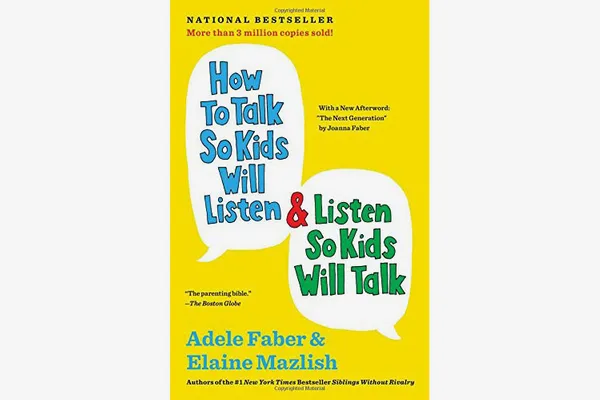
I’m not into guides, but I must say that these are worth reading. It opened my eyes to some reasons for difficulties and that better understanding is often enough to keep you cool and steer the situation away from tantrum. It actually taught me a few things about myself and my own reactions. I like that it focuses on fostering a good relationship with the child, but is also realistic and very practical in terms of how to handle everyday challenges of raising a determined child.
This book is phenomenal. This book helped parents better understand children, themself and why things sometimes go off the rails. The reference manual for the years ahead.
Raising Your Spirited Child
The initial chapters go into personality traits and how these can be used to work with your child’s tendencies rather than against them. When your child simply with not stop, maybe it is because they are extremely persistent. Or if a walk outside means inspecting every leaf and crack then your child is showing another trait. This sets up the rest of the book well to help you tune your approach based on the tendencies of your child.
The suggested strategies appeal to nerdy analytical side. Have a problem with sudden changes or certain times of the day? Take a step back and look for clues as to why that is happening. Experiment to see if you can make improvements by changing how you start or tweak other factors like sleep, timing or energy levels. “Raising your spirited child” by – Mary Sheedy Kurcinka :- A Guide for Parents Whose Child is More Intense, Sensitive, Perceptive, Persistent, and Energetic.
There is a great balance between abstract and concrete topics. While the earlier parts of the book lay a psychological foundation, the later parts are filled with tools and specifics to help you throughout your days. My favorites’ were around working with your children to get to a common goal. A “yes and” to break away from a screaming no.
Thank you for this fantastic book. Although well suited for parents of children who like to push the limits, likely helpful to any parent who wants a few more tools or to understand their child’s tendencies. I would recommend this book and look forward to reading it again. This book is what all parenting books aspire to be. Full of deep insights about children’s – and parents’ – temperaments, thoughts, emotions, and behaviors, AND full of concrete, helpful suggestions for dealing with challenging situations.
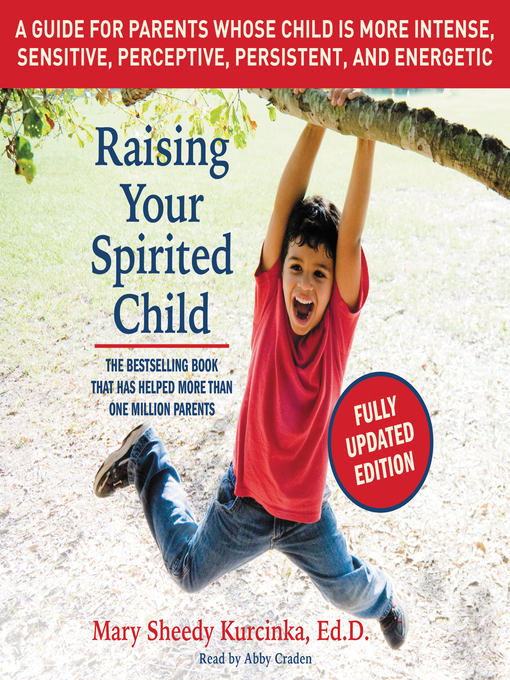
How to deal with a lying manipulative child

How to deal with a lying manipulative child
While saying about Natural consequences for lying child and resolutions or how to deal with a lying manipulative child – Do not lie to the child. If parents fight or debate among themselves. then most children have an impact. Child feels insecurity in themselves. It is not fully developed. Children whose development is healthy is a good development in child.
Situation during lack of parenting
Children lie, This is a truth which every parent has to accept. In this too, the biggest thing is that children are not encouraged to lie, but still this evil is brought in them. This lying habit also makes parents very worried.
An even greater concern is created when they lie repeatedly and for no reason. Due to this habit of children, many times parents stop trusting them and children are under suspicion. Once this lying cycle starts, it becomes very difficult to stop it.
Before we get into the depth of how parents should deal with this situation, We need to know why children lie. There can be many reasons for this. In medical parlance, the habit of repeated lying in children can be caused by few types of disorder.
Certainty and illusions
They say that there are no powers of lies and that it hides lies, but for some time, there is a dependence on the fact that it is a lie because it can be hidden when it is lied to hide some small mistake, but when a particular is deceived. If you are lied to give, then it does not hide for long.
It is said that the age of lies is not much, But few kids stood on lies by making excuses to hide the truth, but the real joy comes when comes to know who is being lied to and that even without knowing the lies of another one without any conversation.
Why Do Children Lie ? Understanding Child Behavior & How to Respond ?
See the extent of his lies by making excuses, the child who lies is realizing that the particular we are lying is stupid but when the other one comes to know the truth and he sees the potential of lying. They starts slowly destroying.
One aspect of lies is that, when we lie to someone and when we realize this, then before that realization, the other one would have left us to trust on and we surrendered. So that trust is not completely back ever.
Society has provided some moral norms to make the social system run in an orderly manner, in which a very important morality is related to speaking the truth.
Keeping in mind the human nature, it can be said that according to his convenience, one does not desist from lying, which gives him relief, but on a large scale other members have to pay the price, so there is a difference between them.
This proverb is popular and propagated that ‘there is no greater austerity (penance) than telling the truth and there is no greater sin than telling a lie’. Penance itself is a very difficult human activity, in which physical facilities have to be completely abandoned.
To completely give up physical comforts is a kind of ‘tapa’ and in the austerity of such tendency, speaking the truth is situated at the top, because to speak the truth means to put the facts as they are, without worrying about one’s own facilities, in the form as which they exist.
This does not correspond to human nature in general, because human is not only the creator of the social system himself, but also by nature a little greedy, lazy and hoarding. Keeping this in mind, it can be said that according to his facilities, he keeps on manipulating the reality.
How to Handle Your Child’s Lying at Every Age
If there is a habit of telling lies or twisting things, then far from winning trust, this one habit brings with you a thousand troubles. Pretending not to do homework, reading comics hidden in course books during exam days, exaggerating the price of a gadget, praising someone or posting anything on social media to get likes.
There is no end to the lies told every day. But why do we become liars? Painter, curator and associate professor says, ‘If someone tells a liar, we feel bad. But why does anyone become a liar? This is a very interesting topic. Actually, our biggest weakness is our desire to be loved and appreciated by others. For this people easily tell the biggest lie.
There may be remorse later, but it is in our nature to be a liar.’ It is this desire that weighs heavily. We also get stressed. You must have also noticed that after telling one lie, we have to tell many more lies about it. You also have to remember what was said last time, which lie should be adopted now to save that last lie.
Children’s childhood is very innocent. In such a situation, Tackle them in such ways :-
Do not punish for every mistake
Appreciate them for telling the truth
Support in trouble
How to positively respond to a child’s defiance and lying ?
In the post-modern society changed by today’s fast song, the thinking of man has become limited only to himself. Morality has become for him only an object of preaching to others. He resorts to all kinds of deceit to benefit himself.
A very important feature under human behavior in daily life is related to speaking the truth, so that the social system and human relations can be continuously progressive, but at one time it is rare to imagine the incomparable sacrifice of King Harishchandra, who performed his truthfulness.
Such actual practice is now impossible
To brief in detailed, Let’s assume – ‘A’ is quite popular on social media. Whenever he puts a post related to his working, new movies or any new technology or information, there is a flurry of like-comments. But ‘B’, who is studying in his class, does not like ‘A’. He clearly says that he does not trust ‘A’ at all, because what he shows is not what he actually is.
As a moral – Even after having proof, we are not supposed to trust anyone completely and sometimes we trust someone in a hurry. Why does this happen? Responding to this question, renowned psychologist says, ‘Trust someone, but not by his words, but by his behavior or actions.
FAQ’s
Q1: How can I tell if my child is lying or being manipulative? A: Look for inconsistencies in their stories, changes in body language, and avoidance of eye contact. Trust your instincts and pay attention to patterns of behavior.
Q2: Why might a child resort to lying and manipulation? A: Children may lie or manipulate to avoid consequences, gain attention or control, seek approval, or protect themselves from perceived threats.
Q3: What should I do if I catch my child lying or manipulating? A: Stay calm and avoid reacting impulsively. Address the behavior calmly, and let your child know that honesty is important to you. Discuss the consequences of lying and encourage open communication.
Q4: How can I encourage honesty in my child? A: Create a safe and non-judgmental environment where your child feels comfortable sharing their thoughts and feelings. Praise honesty and reinforce positive behaviors.
Q5: What if my child continues to lie or manipulate despite discussions? A: Consistently address the behavior and consequences. Seek professional guidance from a therapist or counselor to understand underlying issues and develop strategies for improvement.
Q6: Are there any red flags that indicate a deeper problem? A: If lying and manipulation become frequent and excessive, and if your child’s behavior affects their relationships or school performance, consider seeking professional help.
Q7: How can I teach my child about the importance of trust and integrity? A: Lead by example and demonstrate honesty in your own actions. Have conversations about trust, integrity, and the impact of lying on relationships and self-esteem.
Q8: Could there be underlying issues causing my child’s behavior? A: Yes, certain factors like anxiety, low self-esteem, or past experiences might contribute to lying and manipulation. A professional can help identify and address these issues.
Q9: Should I confront my child about past lies, or focus on moving forward? A: While it’s important to address past lies, focus on the present and future. Encourage positive change and offer support in building better habits.
Q10: How can I set appropriate consequences for lying and manipulation? A: Consequences should be fair, age-appropriate, and related to the behavior. Ensure they understand the link between their actions and the consequences.
Q11: Is it okay to express disappointment in my child’s behavior? A: It’s natural to feel disappointed, but try to avoid excessive shaming or guilt-tripping. Express your feelings calmly and emphasize your belief in their ability to change.
Q12: Can family therapy be helpful in dealing with lying and manipulation? A: Yes, family therapy can provide a safe space to address issues, improve communication, and strengthen relationships within the family.
Remember, the goal is to teach children the importance of honesty and integrity while maintaining a loving and supportive parent-child relationship. Focus on positive reinforcement, open communication, and fostering trust with your child as you address and resolve lying behavior. Patience, empathy, and consistent guidance are essential in helping a lying and manipulative child develop more positive and honest behavior. Professional support can be beneficial in understanding and addressing the underlying causes of the behavior.
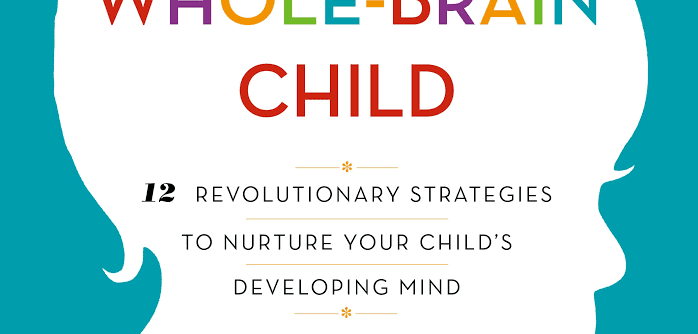
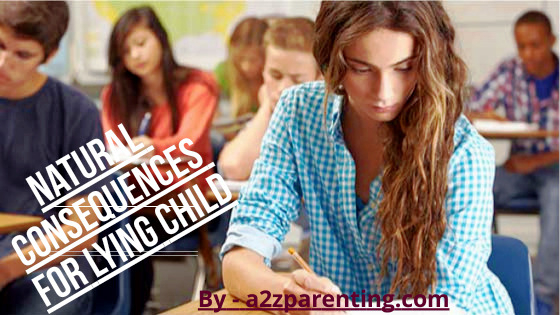
Recent Comment